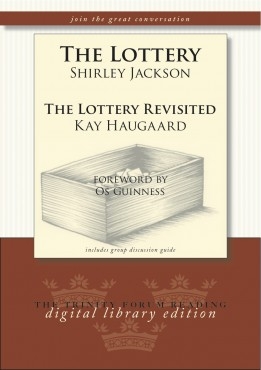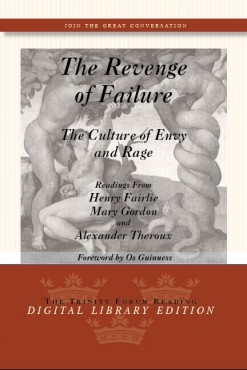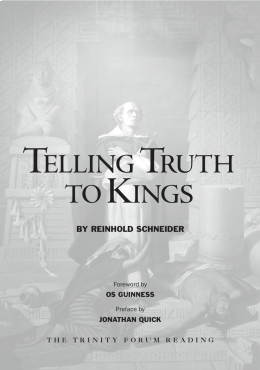“The Lottery,” Jackson’s famous short story, has fascinated readers for years with its unexpected and chilling ending. Included with the story of a troubling but powerful modern essay, “The Lottery Revisited” by Kay Haugaard, which is about her experiences in teaching this story though the years and her students’ increasing acceptance of the unthinkable. Together they raise hard questions about subjectivity and truth in a free society.

The Lottery
“The Lottery,” Jackson’s famous short story, has fascinated readers for years with its unexpected and chilling ending. Included with the story of a troubling but powerful modern essay, “The Lottery Revisited” by Kay Haugaard, which is about her experiences in teaching this story though the years and her students’ increasing acceptance of the unthinkable. Together they raise hard questions about subjectivity and truth in a free society.

The Revenge of Failure
The Culture of Envy and Rage

Telling Truth to Kings
History abounds with examples of brave individuals who courageously told the truth, often challenging authority in the process. The Spring 2013 Trinity Forum Reading, “Telling Truth to Kings,” ably illustrates the high cost of truth-telling through the story of a humble priest who challenges imperial Spain’s treatment of “new world” peoples.
German dissident Reinhold Schneider wrote the story in the 1930s to speak out against the totalitarianism of the Nazi regime, and “Telling Truth to Kings” prompts readers to consider how power, justice, and courage impact truth-telling today.
